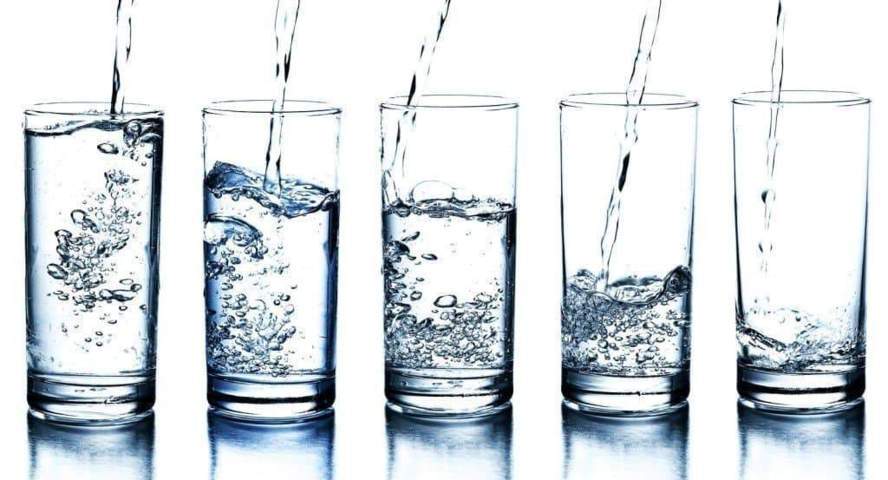Did you know that recent studies show that drinking water stored in copper bottles is a safe and beneficial practice? In this blog post, we'll summarize those studies and explain how you can benefit from using a copper water vessel. Let's get started!
Research Studies
While the concept of storing water in a copper water bottle or other copper vessel arose centuries ago and has its origins in Ayurvedic principles, the practice is gaining increasing attention from the scientific community. In fact, several recent studies have substantiated that drinking water stored in a copper vessel is a safe and beneficial health practice. In this blog post, we'll summarize the results of three recent scientific studies concerning the use of copper water vessels as well as a report from the World Health Organization.

In one recent study, which was published in the Journal of Health, Population and Nutrition, scientists studied the effect of storing water in a copper pot on microbially-contaminated drinking water, including harmful bacteria such as E.coli and salmonella. In particular, scientists stored water contaminated with this bacteria in copper pots for 16 hours at room temperature. Incredibly, following the 16-hour storage period, the scientists were unable to recover any bacteria from the water. In addition, the scientists found that the water's pH level had increased, meaning that it had naturally become more alkaline. As other studies have shown, natural alkaline water has a variety of health benefits.
Significantly, the scientists also determined that the copper content of the water was less than 0.2 ppm (parts per million), which represents an amount far less than the permissible limit set by the World Health Organization ("WHO"). As the study states, “safety of leached copper does not appear to be an issue since studies have shown that the current WHO guideline of 2 mg Cu/L is safe” and the levels absorbed in the study were well within permissible limits.
The WHO's recent report entitled Guidelines for Drinking Water Quality identified an upper limit for consumption of copper in water as 2.0 ppm (or 2 mg per litre), which is far higher than the amount of copper found in the water that was stored overnight in the copper pots as part of the study. This evidence suggests shows that it is likely not harmful to consume too much copper by drinking water stored in a copper vessel, even when that water is stored in the copper vessel overnight or even for several days (more on that below). Nevertheless, we recommend using your copper water bottle in moderation and not storing the same water in it for more than 6 to 8 hours.
In another recent study, scientists again studied the effect of storing water in a copper pot on water contaminated with bacteria. In this study, the scientists incubated water with a colony of harmful bacteria and then stored the water overnight at room temperature in both copper pots and glass bottles. In the morning, the bacteria was no longer recoverable from the water that had been stored in the copper pots, although it was recovered from the water stored in the glass bottles. The study found that the water stored in the copper pots had also become more alkaline.
Significantly, the scientists also determined that while the water stored in the copper pots absorbed some of the copper overnight, the water’s copper content was less than 0.475 ppm, which is well within the permissible limits for human consumption and is thus safe for drinking.
In yet another recent study, researchers stored water contaminated with bacteria in a variety of different water containers, including copper and silver containers, in order to determine their efficacy at removing biological contamination from drinking water. The study revealed that the copper vessels had a significant inhibitory effect on the bacteria in the water after only a few hours of exposure. The scientists found that the pH of the water had also increased within a healthy range.
The scientists in that study also measured the concentration of copper in the water every 2 hours in order to determine whether the water remained safe for consumption. While the scientists detected a gradual increase in the amount of copper absorbed by the water, they determined that the amount still remained well within the permissible limits laid out by the WHO even after the water was stored in the copper vessel for several days.
The following graph from the report provides a helpful illustration of the rate at which copper was absorbed into the water. In particular, the data shows that the copper levels in the water remained within permissible levels even after several days.

The conclusions of these and many other research studies support what Ayurvedic medicine has been telling us for centuries: that drinking water stored in a copper vessel can be a safe and beneficial health practice. We look forward to seeing more evidence in support of the use of copper water bottles as the practice gains increased attention from scientific community. If you are looking for a high-quality 100% pure copper water bottle, check out Copper H2O.
About the Authors: This article was collaboratively written by our team of researchers and writers with the benefit of all available scientific studies and other relevant literature. Our team of researchers and writers include experienced health researchers including a qualified medical professional. Please note that information in this article is not intended or implied to be a substitute for professional medical advice, diagnosis or treatment.
Did You Enjoy This Article?
Thank you for reading! If you enjoyed this article, you might also like the following articles: Copper Vessels: Ultimate Guide and Crystal Elixir and Copper Bottles: Complete Guide


19 comments
Aug 09, 2022 • Posted by Roman Troops
It is suggested to keep water in a copper bottle overnight. It is very beneficial for health. the water gets charged during this time.
Jul 19, 2022 • Posted by Perilla Home
Nice post . Thank you for posting something like this..
Sep 24, 2020 • Posted by Copper H2O
Hi SgtPadilla, thanks so much for your comment! Glad you are enjoying our products!
Sep 24, 2020 • Posted by SgtPadilla
Glad to have purchased Copper H20.
Jul 22, 2020 • Posted by Copper H2O
Hi William, thanks for your question! Water stored in a copper vessel will become increasingly alkaline the longer it remains in the copper vessel, and the speed and degree of the alkalinization process will depend on various environmental factors, including the temperature of the water and its original pH level. In general, the natural alkalinization process will occur a bit faster if the water is at room temperature or slightly warmer. So, in essence, there are many variables at play and it depends! Hope that answers your question!
Jul 22, 2020 • Posted by William
How much mcg of copper would be in the water if left in a 20oz copper vessel for 3 hours?
Jul 07, 2020 • Posted by Copper H2O
Hi Faye, thanks for your question! You can order a copper water bottle from our website at copperh2o.com. We are based in the United States and ship quickly to Georgia! Thanks and have a great day!
Jul 07, 2020 • Posted by Copper H2O
Hi Sushrut, thanks for your question! Removing the tarnish from your copper water bottle is safe and easy. We have a comprehensive guide on the subject here: https://www.copperh2o.com/blogs/blog/how-to-clean-copper-the-complete-guide. Hope that helps!
Jul 07, 2020 • Posted by Sushrut
Copper bottle outer surface get tarnished / black so how to avoid it,
Jul 07, 2020 • Posted by Where can I get a copper bottle from
I live in Georgia
Leave a comment: